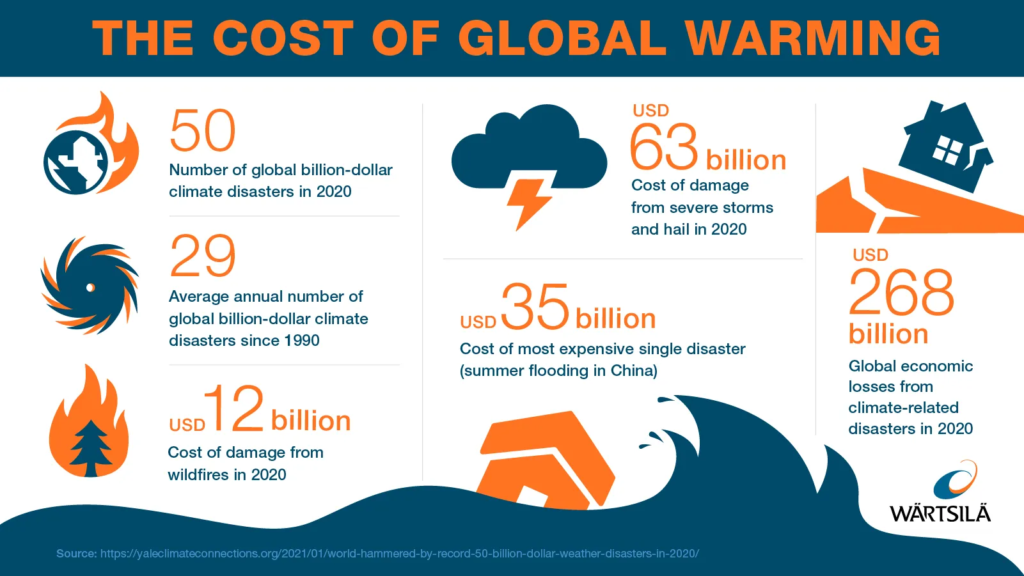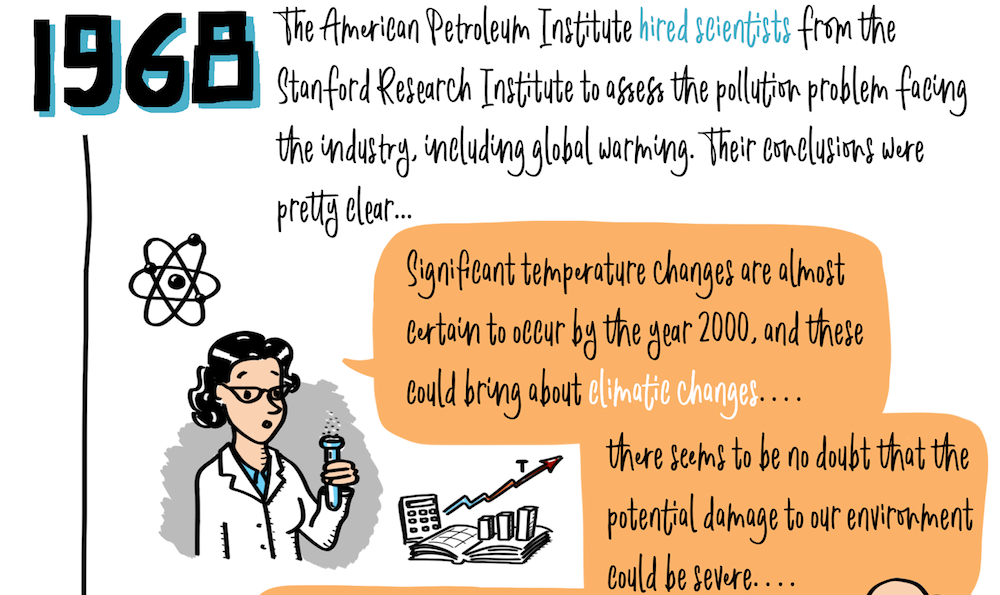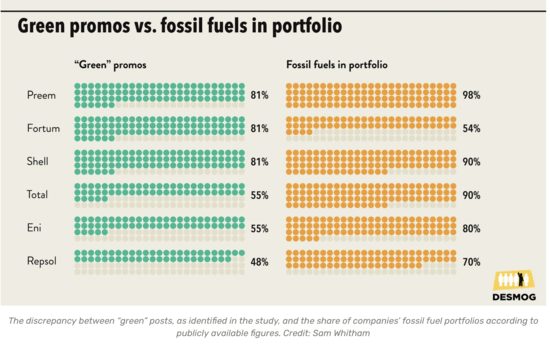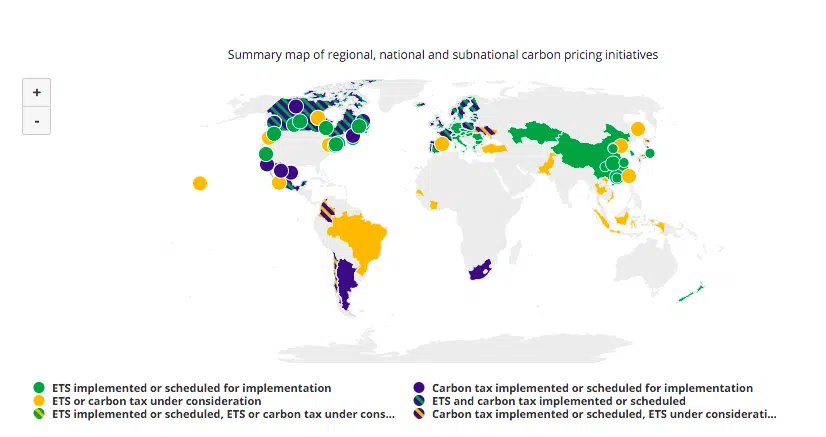Big Oil Stalled Climate Action: What Now?
Sombat Muycheen / Shutterstock.com
26 January 2023 – by Eric Koons
Big oil stalled climate action knowingly for more than 40 years. Even today, while the world widely accepts climate change, big oil prolongs fossil fuel reliance. Instead of directly denying climate change and climate science, these oil and gas companies have largely changed their tactics to one of misinformation and misdirection.
This comes when the fossil fuel industry is posting record profits, yet the impacts of the climate crisis are becoming severer. The world is going through an energy crisis. Climate-fueled disasters cost nearly USD 165 billion in the U.S. alone during 2022, and some of the largest disasters, like the floods in Pakistan, did not affect the U.S. Without a significant change in fossil fuel use, climate change could cost the world up to USD 23 trillion by 2050.
While it is not fair to blame climate change entirely on big oil, the industry plays a significant part.

What is Big Oil?
Big oil is a term used to describe the world’s largest publicly traded oil and gas corporations. It comprises companies such as ExxonMobil, Chevron, BP, Royal Dutch Shell, Total S.A., and other large players in the industry.
What Big Oil Companies Knew About Climate Change – History
The history of big oil and its knowledge of climate change is long. As early as 1896, academics discussed the relationship between atmospheric carbon dioxide and temperature change. While this was the original precursor and didn’t directly link burning fossil fuels to global climate change, it laid the groundwork.
In 1959, this relationship was under discussion in the oil and gas industry. Records show that at a petroleum conference called Energy and Man, a well-known scientist gave a speech warning about the relationship between climate change and fossil fuels. Following this, many oil companies implemented internal research groups that studied the relationship.
In the 1970s, the American Petroleum Institute created a committee called the CO2 and Climate Task Force. Then, in the early 1980s, Exxon released an internal report on the industry’s impact on the climate and the potential future consequences.

Similarly, Shell released an internal report in 1986 that came to a similar conclusion as Exxon. It outlined some potential impacts of climate change, like the dangers of climate migration and rising sea levels. The study was buried and classified as confidential, only resurfacing in 2018. Total, a French oil producer, also knew about the climate change risks as early as the 1970s.
However, even with this knowledge, instead of acting before the issue got out of control, governments and big oil and energy companies seemed to focus on various other findings and used economic indicators to justify the further use of fossil fuels.
As a result, severe storms, rising sea levels and record temperatures are making the planet less hospitable and more prone to isolated extreme weather events. The current and future impacts on global livelihoods are a significant burden on the world.
How Big Oil Contributes to Climate Change
The extraction and burning of fossil fuels directly contribute to climate change. CO2 and other greenhouse gases play a significant part.
For example, natural gas, which some groups tout as a “transition fuel” away from fossil fuels, contains methane. Methane has a global warming potential that is over 80 times more powerful than CO2.
Media and Greenwashing
While these are direct ways that big oil is stalling climate action, it is also implementing a more subtle approach.
The use of greenwashing and misdirection campaigns is prevalent. The leading fossil fuel companies keep making green claims, but reality paints a different picture. For example, Exxon focuses 65% of its public messaging on green initiatives, yet only 8% of its spending is on renewable or carbon-zero solutions. This approach effectively helps Exxon shift its public narrative while continuing to invest in fossil fuel infrastructure. This is how big oil stalled climate action.

Fighting Back Against Oil Industry
Although recovering from fossil-fuel-induced climate change may take up to a century, not all is bleak. We are slowly seeing the public become more aware of climate issues. People are now pushing governments to take more action on the climate.
Already, many governments are putting climate change policies in place. For example, several countries are implementing a carbon tax, which has the potential to significantly reduce greenhouse gas emissions by forcing companies to reduce their emissions or face economic disincentives.

Other legislation, like the EU’s deforestation policies, tax incentives for renewable energy development and international agreements, are tackling climate change from different angles.
Ultimately, a global shift away from fossil fuels, along with adaptation and mitigation policies to protect impacted regions, is necessary to limit the impacts of climate change.
The Future For Oil Majors and Fossil Fuel Companies
Although the future may seem bleak, especially as oil companies expand their production capacities, the public is wising up to the situation. Every year, communities are more aware of common greenwashing practices and are demanding change.
As oil giants continue to report record profits, the world must press them to look towards the future. The renewable energy industry is rapidly increasing, and capital from big oil companies, if used correctly, will help push the transition forward.
by Eric Koons
Eric is a passionate environmental advocate that believes renewable energy is a key piece in meeting the world’s growing energy demands. He received an environmental science degree from the University of California and has worked to promote environmentally and socially sustainable practices since. Eric’s expertise extends across the environmental field, yet he maintains a strong focus on renewable energy. His work has been featured by leading environmental organizations, such as World Resources Institute and Hitachi ABB Power Grids.
Read more

